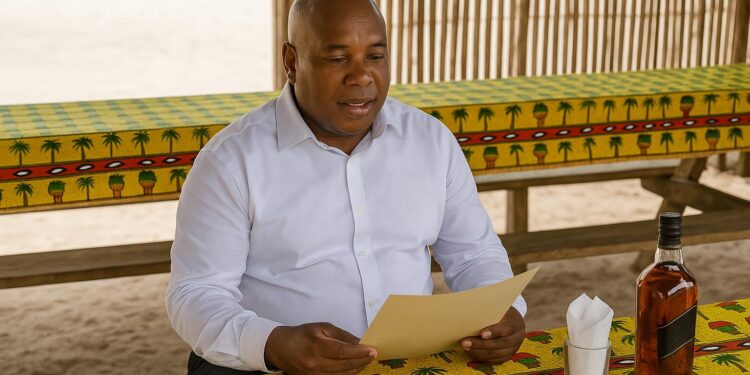Presidential Decree Sets Administrative Reset
On 31 March President Denis Sassou Nguesso signed Decree 2025-87 appointing fifteen prefects across the Republic of the Congo, a decisive administrative refresh designed to move decision-making closer to citizens while preserving national cohesion, officials confirmed in Brazzaville.
A complementary decree on 6 May selected fifteen departmental secretaries-general, forming tandem leadership teams expected to expedite public services, budgeting and security coordination. Government spokespeople frame the twin decrees as the operational phase of an incremental decentralization policy launched in 2019 (ACI, 3 April 2025).
A Mix of Experience and Fresh Leadership
Ten veteran prefects retain their posts, offering continuity, while five newcomers—including Marcel Ganongo in Bouenza and Emma Henriette Berthe Bassing Nganzali in Cuvette—signal calculated renewal. Analysts in Pointe-Noire say the balance safeguards institutional memory without stifling innovation (Les Dépêches de Brazzaville, 4 April 2025).
The pattern continues among secretaries-general; administrative insider Thévy Duvel Mongouo Wando brings capital-city experience to Brazzaville, whereas younger technocrat Servais Kiba assumes duties in forest-rich Likouala. Their mandates include digitizing registries, combating petty corruption and supervising prefectural budgets aligned with the 2024–2028 National Development Plan.
Aligning Decentralization With National Planning
The new prefectural map reflects the 2022 re-demarcation that created departments such as Congo-Oubangui and Djoué-Léfini. Central planners argue that smaller territorial units improve statistical tracking for health, education and climate adaptation projects funded by the African Development Bank (AfDB Country Brief, 2024).
Officials emphasize that prefects now chair departmental committees integrating municipal mayors, customary chiefs and private-sector delegates. The arrangement is expected to accelerate disbursement of the $450 million rural roads program co-financed by the World Bank and China’s Exim Bank (World Bank project note, 2025).
Local Stakeholders Weigh Governance Impact
In Nkayi, farmer cooperative leader Pierrette Bouyika welcomes Ganongo’s agricultural background, hoping for quicker land-title processing. However, she cautions that gains will depend on sustained internet connectivity to register crops for export certification; the prefect’s office has promised additional satellite links by year-end.
Civil-society groups in Pool department express optimism that Prefect Jules Monkala Tchoumou’s security expertise could consolidate the 2017 cease-fire. A spokesman for the Pool Peace Forum notes that inclusion of ex-combatant representatives in departmental councils would showcase Brazzaville’s commitment to durable reconciliation.
Gender and Regional Representation Trends
Three departments—Niari, Nkeni-Alima and Cuvette—are now headed by women at either prefect or secretary-general level, a modest rise that NGOs regard as encouraging yet incomplete. The Ministry of Gender has set a 40 percent target for senior territorial posts by 2030 (UN Women Congo, 2023).
Regional balance also surfaces: northerners lead strategic forest regions, while southerners administer oil-producing Kouilou and Pointe-Noire. Political scientist Delphine Okemba contends that the geographical mix reflects traditional power-sharing norms that have underpinned domestic stability since the 2003 constitutional settlement.
International Observers on Congo’s Stability
Diplomatic sources in Addis Ababa link the appointments to Congo’s bid for a non-permanent UN Security Council seat in 2026, arguing that demonstrable administrative efficiency strengthens its candidacy. They highlight Sangha Prefect Edouard Denis Okouya’s experience in cross-border wildlife enforcement as resonating with regional security agendas.
The European Union’s envoy in Brazzaville told this magazine that clear reporting lines between prefects and secretaries-general could ease delivery of €110 million in budget-support commitments tied to governance benchmarks. “Predictability at the departmental level lowers fiduciary risk,” the envoy observed.
Administrative Future: Opportunities and Hurdles
Observers note that prefectural offices must still contend with fiscal constraints; only 28 percent of the 2025 budget is devolved. Finance Minister Ingrid Olivia Ebouka-Babackas has hinted at a new revenue-sharing formula that would allocate a share of mining royalties directly to departmental treasuries.
Digitalization presents another test. The government’s e-administration portal, piloted in Brazzaville, is slated for nationwide roll-out by 2026. Secretaries-general are tasked with training 1,200 clerks in document-management software donated by South Korea’s KOICA programme.
Security remains a parallel priority. Prefect Pierre Cébert Ibocko-Onanga has already convened joint patrol strategies with the navy to curb fuel smuggling along Pointe-Noire’s coast. The initiative mirrors President Sassou Nguesso’s emphasis on safeguarding hydrocarbons infrastructure vital to fiscal health.
Diplomats interviewed stress that success will hinge on consistent inter-ministerial coordination. Yet, the prevailing sentiment is that the latest appointments equip Congo-Brazzaville with a cadre capable of translating national blueprints into local realities, reinforcing both public confidence and investor predictability.
Looking ahead, the Prime Minister’s office plans an annual performance review for each prefect, tying bonuses to metrics such as school-enrolment rates and maternal mortality, a first for Congo’s territorial administration, according to cabinet documents.












































